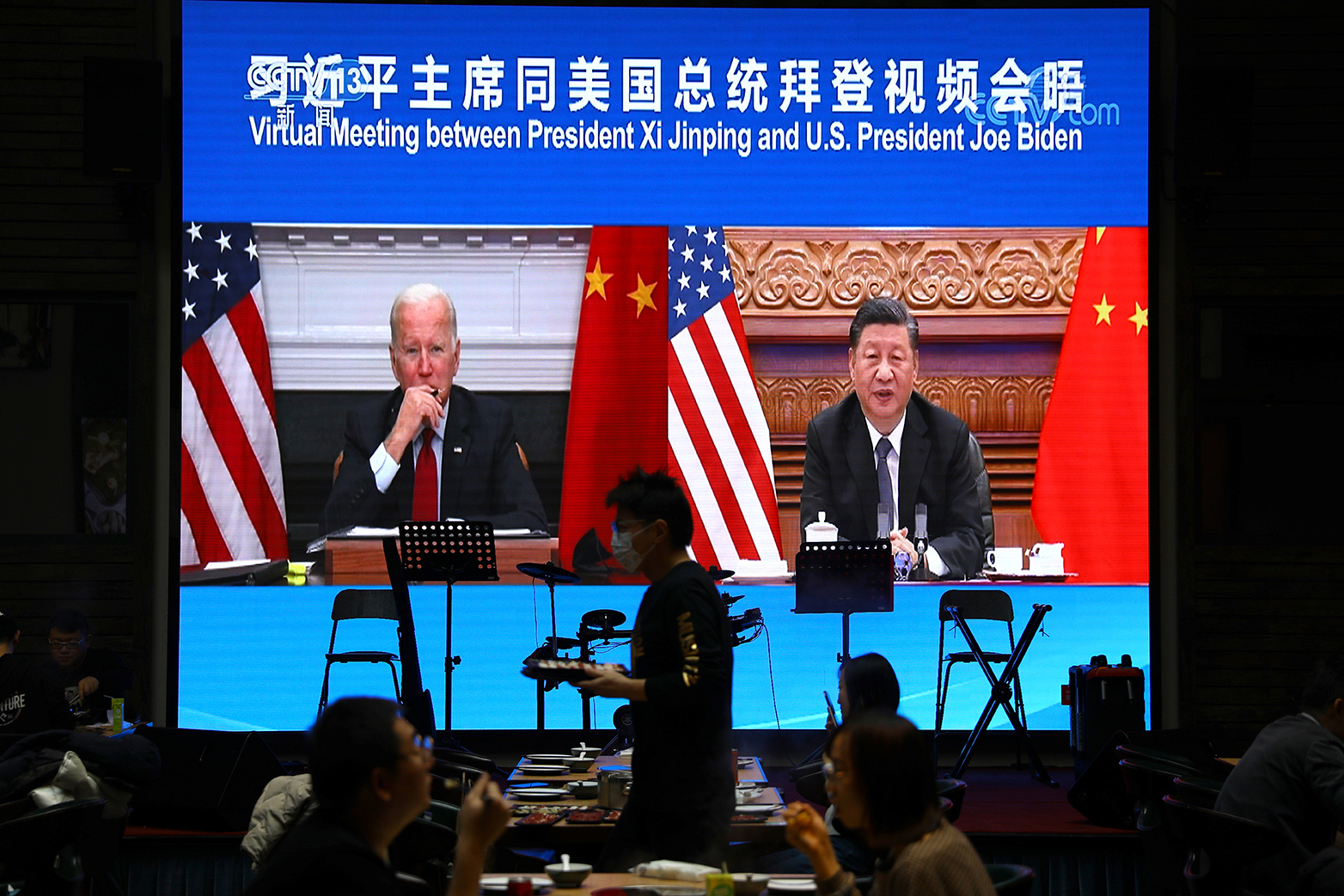US-China “Tech Decoupling”: A Swiss Perspective
A partial technological decoupling of the United States and China is already under way. Switzerland will also feel the ripple effects, argues Sophie-Charlotte Fischer in this CSS Policy Perspective.

A screen shows Chinese President Xi Jinping attending a virtual meeting with US President Joe Biden, in Beijing, China November 16, 2021. Tingshu Wang / Reuters
Key Points
- The intensifying US-China competition for technological advantage, combined with supply chain vulnerabilities highlighted by the COVID-19 pandemic, has initiated a partial decoupling of the American and Chinese high-tech ecosystems.
- Decoupling in the tech sector bears significant challenges for both countries. These include the high level of specialization in certain industries, the costs of technology restrictions for companies and consumers, and the likely negative impact of restrictive measures on innovation.
- The US-China tech decoupling also affects Switzerland as a highly globalized small state and as a platform for global governance initiatives. To mitigate negative repercussions, Berne should increase the resilience of strategically important technology supply chains and use its unique strengths to serve as a “tech intermediary” between the US and China.